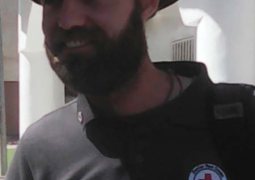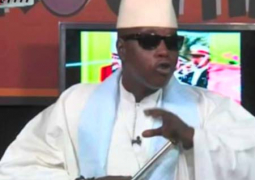Women for Democracy and Development (WODD) from 15 to 16 February held a two-day Training of Trainers Sensitisation Workshop on the AU Women Protocol, at Nyakoi, Medina Koto, Wuli West in URR North of The Gambia.
The activity being funded by the Gender Action Team (GAT) under the auspices of the African Centre for Democracy and Human Rights Studies (ACDHRS), was co-sponsored by OXFAM (Great Britain) and DFID under the Raising Her Voice Project (RHV).
According to a press release issued by its Executive Director Amie Sillah, in attendance were 40 participants, 25% of whom were men. The communities involved were Wuli West, Wuli East and Sandu WODD study circles. Ms. Amie Sillah, WODD?s Executive Director, chaired the programme.
Present at the workshop were Ms. Haddy Njie of ACDHRS, who deputised for Ms Hannah Forster, Executive Director of ACDHRS and Ms. Phillott, the Coordinator of the Raising Her Voice Project, Ms. Barbara Arrington representing GAT as monitor of the activity.
Ms Njie in her opening remarks commended the women for their hard work and sacrifice to keep the family intact yet this great work is not recognised by the family and society. "The Raising Her Voice Project (RHV) has come to raise the voice of women and girls. It has come to give her visibility and recognition. It is a global initiative, covering 8 African countries, including The Gambia. The African Centre is part of The Solidarity For African's Women's Human Rights (SOAWR) that is leading the Campaign to Raise Her Voice. The project is being sponsored by OXFAM (Great Britain) and DFID." She acknowledged WODD's-GAT membership and said they are proud to work with WODD's study circles.
Some WODD's board members and representatives from the centre and GAT served as resource persons.
Articles 2 to 24 were dealt with. Article 2 deals with Discrimination Against Women, Article 3 deals with Dignity, Article 4 deals with the Right to Life, Integrity and Security of the Person, Article 5 deals with Elimination of Harmful Practices, Article 6 deals with marriage, Article 7 deals with Separation, Divorce and Marriage Annulment, Article 8- deals with Access to Justice and Equal Protection before the Law, Article 9 deals with the Right to Political Participation, at all levels of Governance, Article 10 deals with the Right To Peace, Article 11 - deals with Protection of Women during Armed Conflict, Article 12 deals with the Right to Education and Training of Women; Article 13 deals with Economic and Social Welfare Rights, Article 14 deals with Reproductive and Health Rights, Article 15 deals with the Right to Food, Article 16 deals with the Right to Adequate Housing; Article 17 deals with the Right to Positive Culture, Article 18 deals with the Right to a Healthy and Sustainable Environment e.g. Waste Management and Control, Article 19 the Right to Sustainable Development, e.g. Access to Resources, such as credits and land etc.; Article 20 deals with Widow?s Rights, Article 21 deals with the Right to Equitable Inheritance, Article 22 deals with Protection of the Elderly; Article 23 deals with Special Protection of Women with Disabilities and Article 24 deals with Special Protection of Women in Distress.
After the lectures, the participants were divided into 2 groups to deal with the said Articles. Articles 2 - 12 were dealt with by one group, while Articles 13 - 24 were dealt with by the other.
The facilitators helped the groups to come up with recommendations.




